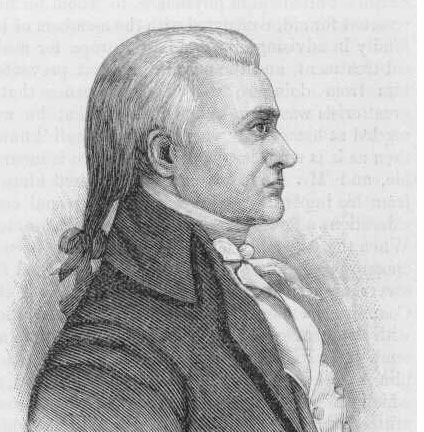Caesar Rodney

Caesar Rodney was born on his family’s large plantation near Dover, Delaware in 1728. He received little in the way of a formal education while growing up, but this did not deter him from seeking and attaining important political positions in his state. He served as high sheriff, register of wills, recorder of deeds, clerk of the orphans' court, justice of the peace, militia captain, and cotrustee of the loan office. In addition, he held the position of justice of the Superior Court for Delaware between 1758 and 1776.
Rodney served on the Continental Congress for two years, but he was frequently in Delaware since state affairs interested him above all else. His one moment of glory came about when, on July 1, 1776, he rode through the night to reach Philadelphia and successfully break the tie that was blocking Delaware’s support for the Declaration of Independence. This vote cast in support of the Declaration of Independence angered a large number voters in Delaware though, and he was not reelected to Congress or to the legislature. Furthermore, he was not one of those asked to participate in the State constitution convention. He therefore stuck to military matters, serving as major general in 1777. He was reelected to the Congress in December of 1777, and served as State president from 1778 until 1781. In 1783, although ailing as result of a cancerous growth on his face, he began a term in the State senate. He died in 1784 at the age of fifty-five. His grave is at the Christ Episcopal Church in Dover.
 >
>